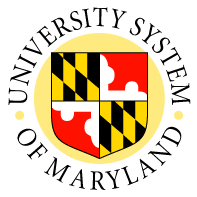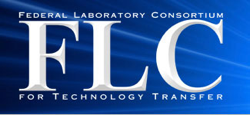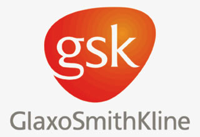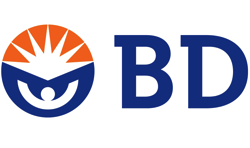|

With a budget bill passed this weekend and the University System of Maryland successfully lobbying for limited cuts to its state funding, the final day of the state’s legislative session was less intense for the higher education lobby.
The most significant bills for this university and the university system received support in both chambers of the legislature and passed with little controversy.
But for what amounted to a quiet day, the university system secured significant victories, with measures that use university resources to spur economic development and a state grant program aimed at attracting talented faculty to state universities passing one right after the other on the morning of sine die.
back to top 

GlycoMimetics, Inc. (NASDAQ:GLYC) announced today that data for its lead clinical drug candidate, rivipansel (GMI-1070), was highlighted via one oral presentation and one poster at the 8th Annual Sickle Cell Disease Research and Educational Symposium and 37th National Sickle Cell Disease Scientific Meeting, held April 11-14, 2014, at the InterContinental Miami.
Rivipansel is in clinical trials as a potential therapy for the treatment of vaso-occlusive crisis (VOC) in people with sickle cell disease. It has previously received both Orphan Drug and Fast Track status for the treatment of VOC from the U.S. Food & Drug Administration (FDA), and Orphan Product status in the European Union. GlycoMimetics is developing rivipansel in collaboration with Pfizer, Inc.
back to top 

A group of University of Maryland undergraduates put together a spectacular hackathon this weekend, attracting more than 750 college students from across the country to take part in the 36-hour long event. The hackathon, which went by the name of Bitcamp, lasted from April 4-6 in Cole Field House on school grounds, providing students with the opportunity to collaborate with fellow innovators in creating brilliant new hardware and applications for mobile devices, computers or the Web.
back to top 

QIAGEN N.V. today announced it has acquired an exclusive worldwide license to the biomarker calreticulin (CALR), whose recently discovered mutations are found in an estimated 15% of cases of myeloproliferative neoplasms (MPNs), a group of blood disorders. QIAGEN licensed the technology from CeMM Vienna, the Research Center for Molecular Medicine of the Austrian Academy of Sciences, whose scientists led a team that discovered the presence of mutations of the CALR protein in MPNs. QIAGEN plans to develop a molecular diagnostic test for the CALR mutations to offer each patient a clearer prognostic profile and to guide disease management. Development of a CALR diagnostic test is expected to be highly complementary to QIAGEN's kits for a key mutation of the Janus kinase 2 (JAK2) gene.
Myeloproliferative neoplasms, a group of blood disorders involving overproduction of blood cells, are chronic diseases that can lead to several complications including thrombosis (blood clots) and in some cases difficult-to-treat acute leukemia. QIAGEN already has an exclusive license for the JAK2 V617F mutation, which is present in about 75% of patients with MPNs. According to an article published in the New England Journal of Medicine in December 2013 by the CeMM team led by Robert Kralovics, patients with CALR mutations suffer from a milder form of the disease than those with the JAK2V617F mutation, including a lower risk of thrombosis and a higher survival rate.
back to top 

This year has been charted with the unfolding of several White House technology initiatives that involve leveraging the groundbreaking work of the nation’s federal laboratories. In 1986, the Federal Laboratory Consortium for Technology Transfer (FLC) was mandated to pursue these initiatives by facilitating the movement of technologies from labs to the marketplace, strengthening research and development by streamlining technology transfer (T2) procedures, and increasing industry partnerships and collaborations. And, given the theme of this year’s FLC national meeting, “Accelerating Innovation for Economic Impact,” coupled with its nearby capital setting at the North Bethesda Marriott in Rockville, Maryland, this year is no exception.
back to top 
DC I-Corps, in partnership with BioHealth Innovation, Inc., has developed a new, NSF-supported program designed to foster, grow and nurture the life science innovation ecosystem in the Mid-Atlantic Region and is now accepting applications for its spring cohort, beginning on May 12th. Applications will be accepted on a rolling basis up until that date.
Open to research teams and aspiring entrepreneurs from the National Institutes of Health and other federal laboratories, the free program guides researchers in exploring the commercial potential of their inventions.
Through DC I-Corps, you will:
- Learn how to assess the commercial value of life science technologies through a customer discovery process;
- Work closely with six or more real-world advisors that have startup, venture capital, and technology commercialization experience over a five-week period; and
- Come to a clear go or no-go decision regarding the commercial potential of your technology.
The program is geared towards innovations coming from medical / health / and life sciences. DC I-Corps builds upon the successful National Science Foundation (NSF) I-Corps program. The program is jointly offered by the University of Maryland, BioHealth Innovation, Inc., George Washington University, and Virginia Tech.
For more information, please visit www.dcicorps.org/nih-bhi-program-information/
Location and Program Dates: www.dcicorps.org/nih-program-dates/
To Apply: www.dcicorps.org/nih-bhi-cohort-application
back to top 

BVCF, a Shanghai-based life sciences investor, has closed its third fund with $188 million to back upstart biotechs on both sides of the Pacific focused on the booming Asian market. Dow Jones' VentureWire and other media outlets reported that the backers to this fund include Novartis ($NVS), BlackRock, NEA and International Finance, which is gambling $20 million on the fund at a when time drug development activities in China continue to heat up.
BVCF sits on the crossroads of a relatively small but fast-growing area in biotech. U.S. and European biopharma companies have been looking for new ways to enter the Chinese drug market as the Big Pharma giants build out large new R&D operations in Asia and start linking up with academic groups. And the trend is spawning new joint ventures and company startups with in-licensed development projects.
back to top 

Drug research is a small world, where the main players often intersect repeatedly as they take on new roles at different institutions. And MD Anderson's new "moon shots" program on immuno-oncology is proving that maxim yet again as GlaxoSmithKline's immunotherapy team suits up for the last big slot in an ambitious alliance of industry giants aimed at discovering some new products in the red-hot cancer R&D field.
GlaxoSmithKline ($GSK) is taking a berth next to teams from AstraZeneca ($AZN), Pfizer ($PFE) and Johnson & Johnson ($J&J). And the pact brings together two of the key players in the development of Yervoy, the pioneering anti-CTLA-4 immune checkpoint inhibitor which helped trigger one of the most frenetic development races the industry has seen.
back to top 

The Tech Council of Maryland (TCM), Maryland’s largest technology trade association for life science and technology, today praised state lawmakers for advancing key priorities for the tech community during this year’s legislative session. The 2014 session concluded on Monday.
“We are encouraged to see Maryland lawmakers and the Administration come through on our biggest pro-growth priorities: stronger incentives for R&D, biotechnology, and cybersecurity,” said Phil Schiff, TCM’s CEO. “These industries are the catalysts for innovation and job growth in Maryland, and we are grateful to see so many policy makers in Annapolis recognize the pivotal role they will play in Maryland’s economic future.”
back to top 

BD Diagnostics, a segment of BD (Becton, Dickinson and Company), a leading global medical technology company, announced today the CE mark and launch of the BD MAX™ GC rt PCR assay in Europe. The BD MAX GC rt PCR assay is an in vitro diagnostic test intended for testing Neisseria gonorrhoeae (GC) positive results from the BD ProbeTec™ GC Qx Amplified DNA Assay performed on the BD Viper™ System with XTR™ Technology. The assay may be used for detection of GC DNA in residual male or female urine specimens, or residual endocervical, vaginal or male urethral swab specimens that have tested positive for GC using the BD ProbeTec GC Qx Amplified DNA Assay.
back to top 

In a bid to expand its pipeline of Personalized Healthcare assays, Qiagen NV (QGEN - Snapshot Report) acquired an exclusive worldwide license for the calreticulin (CALR) biomarker from CeMM Vienna, the Research Center for Molecular Medicine of the Austrian Academy of Sciences.
Qiagen retains a strong pipeline of promising biomarkers under development for Personalized Healthcare tests pertaining to rheumatoid arthritis, lung cancer, colorectal cancer, glioblastoma, lymphoma and other cancers. Post acquisition of the license, Qiagen will develop a molecular diagnostic test for CALR mutations that will help healthcare providers to make more informed therapeutic decisions.
back to top 

The University of Texas MD Anderson Cancer Center announced its new collaboration with GlaxoSmithKline to advance development of cancer immunotherapies.
The collaboration will focus on the identification of new therapeutic approaches, evaluation of patient outcomes in clinical testing, and utilization of resulting information to develop drugs that recruit the body’s own immune system against cancer.
back to top 

The National Heart, Lung, and Blood Institute (NHLBI) seeks feedback from the small business community regarding the current state of the science and commercial feasibility of using in vitro human cellular models as an experimental tool for predicting in vivo drug responses to cystic fibrosis transmembrane conductance regulator (CFTR)-directed therapeutics for Cystic Fibrosis (CF) lung disease at the individual level. Responses to this Request for Information (RFI) will assist NHLBI staff in assessing the value of the research in areas related to advancing precision medicine approaches to treatment.
back to top 

New Enterprise Associates, Inc. (NEA), a leading global venture capital firm, today announced the kickoff of a second installment of its design mentorship program, In the Studio. Building on NEA's successful 2013 program, In the Studio will be an intensive, two-week program for up to six design teams, developed and produced in collaboration with New York City-based product studio All Tomorrows, led by Albert Lee, and with Liz Danzico, founding chairperson of the Interaction Design program at New York City's School of Visual Arts. Applications are now being accepted for the program, which will take place June 2nd through 17th, 2014.
Led by NEA Partner Dayna Grayson, the program evolved in response to a growing community of entrepreneurially minded designers, particularly in the New York City tech ecosystem. With design increasingly central in building successful consumer and enterprise applications, the program recruits talented designers with entrepreneurial or startup aspirations and provides mentorship, resources and opportunities to collaborate.
back to top 

Historic release of data gives consumers unprecedented transparency on the medical services physicians provide and how much they are paid
Today, as part of the Obama administration’s work to make our health care system more transparent, affordable, and accountable, Health and Human Services (HHS) Secretary Kathleen Sebelius announced the release of new, privacy-protected data on services and procedures provided to Medicare beneficiaries by physicians and other health care professionals. The new data also show payment and submitted charges, or bills, for those services and procedures by provider.
back to top 

Fifty-four weeks after it opened, 1776 serves as a packed and noisy hub for Washington’s startup community.
Evan Burfield and Donna Harris founded the business incubator in January 2013, and 1776 moved into its 12th-floor offices, which are a 10-minute walk north of the White House, on April 1, 2013.
back to top 

Health care is a misnomer for our medical system. It should be called sick care. Doctors, hospitals and pharmaceutical companies only make money when we are in bad health. If we could instead prevent illness and disease, it would turn the entire medical system on its head and increase the quality of our lives.
The good news is that technology is on its way to letting us do this. It is now moving so rapidly that within a decade the small handheld medical reader used by Dr. Leonard McCoy in Star Trek — the tricorder — will look primitive. We are moving into an era of data-driven, crowdsourced, participatory, genomics-based medicine. Just as our bathroom scales give us instant readings of our weight, wearable devices will monitor our health and warn us when we are about to get sick. Our doctors—or their artificial intelligence replacements—will prescribe medicines or lifestyle changes based on our full medical history, holistic self, and genetic composition.
back to top 

Today the Pharmaceutical Research and Manufacturers of America (PhRMA) released a report that outlines two potential growth trajectories for the U.S. biopharmaceutical sector and the top policy factors that enable the industry to innovate and, in turn, contribute to the U.S. economy.
Developed by the Battelle Technology Partnership Practice, the report finds that coverage and payment policies, a well-functioning, science-based regulatory system and strong intellectual property (IP) protections drive U.S. leadership in biopharmaceutical innovation, and if negative trends in these key policy areas continue, jobs supported by the industry would decrease over the next decade. However, if reasonable pro-innovation policies are pursued, the U.S. biopharmaceutical sector stands to retain and add well over 300,000 jobs to the U.S. economy by 2021.
back to top 

A less-invasive brain diagnostic test, a surface so slippery bacteria can’t stick to it, and a low-cost mylar wrap to help warm babies’ heads after surgery were three of the projects on display at Boston Children’s Hospital’s first-ever Innovators Showcase Friday.
The event is part of a larger push by Chief Innovation Officer Naomi Fried’s office to seek out innovators across the organization, support them with advice and sometimes money, and help guide them towards commercialization.
back to top 

If you were to ask most early-stage companies what they’d consider to be a decent prize from a group of investors for a well pitched device or service, they’d probably say money. But at an entrepreneur forum at Penn Medicine, the rewards were as varied as the groups offering them. Venture capitalists, angel investors, accelerators and incubators each offered a different take on what a reward should look like.
Philadelphia has been working to build a better entrepreneur ecosystem to grow companies and stimulate job growth. As part of that trend, institutions are looking for ways to get more investors involved.
back to top 
|